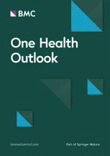
One Health Outlook
metrics 2024
Empowering voices in One Health discourse.
Introduction
One Health Outlook is a dynamic open-access journal published by BMC, dedicated to advancing research and discourse within the interdisciplinary field of One Health. With a critical focus on the interconnectedness of human, animal, and environmental health, this journal provides a platform for scholarly discussions that address global health challenges. Launched in 2019 as an open-access resource, One Health Outlook aims to foster collaboration among researchers, practitioners, and policymakers, enabling them to share innovative solutions and data that influence health outcomes worldwide. Its commitment to making research freely accessible enhances its potential impact and reach, making it an invaluable resource for anyone engaged in One Health studies. The journal strives to bridge gaps in knowledge and promote best practices through high-quality research articles, review papers, and case studies, ensuring relevance in an ever-evolving health landscape.
Metrics 2024
 -
- 3.80
3.80 4.30
4.30 -
-Metrics History
Rank 2024
IF (Web Of Science)
JCI (Web Of Science)
Quartile History
Similar Journals

BMC Veterinary Research
Transforming veterinary practices with cutting-edge research.BMC Veterinary Research, published by BMC in the United Kingdom, stands as a pivotal open-access platform dedicated to advancing the field of veterinary science since its inception in 2005. With an impressive impact factor that reflects its influential presence, this journal has achieved a remarkable ranking of #17 out of 194 in the Scopus Veterinary category, placing it in the 91st percentile among its peers. The journal serves as an essential resource for researchers, professionals, and students alike, fostering the dissemination of high-quality research and innovative practices within the veterinary and broader medical communities. With its commitment to open access, BMC Veterinary Research ensures that valuable insights are accessible to all, promoting collaboration and knowledge sharing that drive the advancement of veterinary sciences. As it continues to publish significant findings until 2024, it remains a key contributor to the contemporary discourse on animal health and welfare.

Journal of Global Infectious Diseases
Innovative insights for pressing health challenges.Journal of Global Infectious Diseases, published by Wolters Kluwer Medknow Publications, serves as a pivotal resource in the field of infectious diseases, offering insightful research and critical analyses that contribute to global health discourse. Since its inception as an Open Access journal in 2009, it has aimed to disseminate knowledge on various facets of infectious diseases, fostering collaboration among researchers, clinicians, and public health professionals. With an impact factor indicative of its growing significance—ranked in the Q3 category of Infectious Diseases for 2023—this journal publishes a diverse range of studies, from basic science to clinical applications. Its dedicated contributions help address pressing health challenges and enhance knowledge sharing in an era where infectious diseases pose significant threats worldwide. Based in India, the journal not only highlights regional health issues but also connects to the broader global landscape, making it an essential platform for anyone interested in advancing the field.
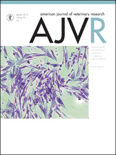
AMERICAN JOURNAL OF VETERINARY RESEARCH
Connecting Research and Clinical Practice in Veterinary MedicineAmerican Journal of Veterinary Research, published by the American Veterinary Medical Association, serves as a cornerstone of the veterinary medical community, providing essential insights from 1945 to the present. With an ISSN of 0002-9645 and E-ISSN of 1943-5681, this esteemed journal focuses on a diverse range of topics within the veterinary field, contributing to the advancement of veterinary science through rigorous peer-reviewed research. Ranking in the Q2 category in Veterinary (miscellaneous) and Q3 in Medicine (miscellaneous) category as of 2023, it holds a respectable position in Scopus rankings, further emphasizing its impact in the field. While currently not an Open Access journal, its objective remains clear: to disseminate cutting-edge research that informs clinical practice and enhances animal health and welfare. The American Journal of Veterinary Research is invaluable for researchers, professionals, and students seeking to stay at the forefront of veterinary advancements and innovations.
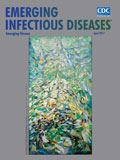
EMERGING INFECTIOUS DISEASES
Connecting Knowledge with Action in Infectious DiseasesEmerging Infectious Diseases, published by the Centers for Disease Control and Prevention, is a leading open-access journal that has been dedicated to the field of epidemiology, infectious diseases, and medical microbiology since its inception in 1995. With an impressive impact factor placing it in the Q1 quartile rankings for multiple categories including Epidemiology, Infectious Diseases, and Medical Microbiology, this journal serves as a vital resource for researchers, practitioners, and students dedicated to combating the challenges posed by emerging infectious diseases. The journal's distinguished Scopus ranks further highlight its global influence, ranking #10 in Epidemiology, #26 in Infectious Diseases, and #13 in Medical Microbiology, all within the top percentiles. Accessible and targeted, Emerging Infectious Diseases publishes seminal research and reviews that contribute to the understanding and management of infectious diseases, ensuring that critical insights reach a broad audience. The journal encourages contributions that advance the scientific community’s knowledge and responses to public health challenges.

Current Research in Parasitology & Vector-Borne Diseases
Empowering researchers with open access to vital findings.Current Research in Parasitology & Vector-Borne Diseases, published by ELSEVIER, is an influential journal dedicated to advancing the understanding of parasitology and vector-borne diseases. With an ISSN of 2667-114X, this journal is highly esteemed in the field, holding a prestigious Q1 quartile ranking in categories such as Animal Science and Zoology, Insect Science, and Parasitology, as well as a notable Q2 ranking in Virology for 2023. The journal's focus spans a crucial intersection of disciplines, offering a platform for innovative research that directly addresses global health challenges posed by parasites and vectors. Researchers benefit from its robust open-access model, which facilitates unrestricted dissemination of knowledge, making essential findings accessible to a wider audience. The journal continues to play a pivotal role in fostering scholarly dialogue and interdisciplinary collaboration within the scientific community, serving as a vital resource for professionals, students, and academicians interested in the dynamic and evolving field of parasitology.
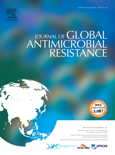
Journal of Global Antimicrobial Resistance
Transforming knowledge into action against antimicrobial resistance.The Journal of Global Antimicrobial Resistance, published by Elsevier Scientific Ltd, is a premier open access journal dedicated to addressing the critical issue of antimicrobial resistance on a global scale. Established in 2013 and significantly gaining traction as an open access platform since 2020, this journal serves as an essential resource for researchers, healthcare professionals, and policy makers invested in immunology, microbiology, and associated fields. With an impressive impact factor reflected through its consistent ranking in the Q2 category across multiple disciplines, including Microbiology and Immunology – where it ranks #29 out of 140 in Medical Microbiology – the journal ensures high-quality peer-reviewed articles that push the boundaries of current knowledge and practice. By offering a global perspective on research trends and public health implications, the Journal of Global Antimicrobial Resistance plays a pivotal role in advancing the scientific discourse necessary to combat the rising tide of antimicrobial resistance worldwide.

Journal of Infection in Developing Countries
Empowering communities with vital infectious disease insights.Journal of Infection in Developing Countries, published by J INFECTION DEVELOPING COUNTRIES, is a premier open-access journal dedicated to advancing research in the fields of infectious diseases, microbiology, parasitology, and virology, particularly within the context of developing nations. Established in 2007 and actively disseminating knowledge since 2008, this journal aims to bridge the gap between researchers and practitioners by providing a platform for high-quality, peer-reviewed articles that address the unique challenges faced in these regions. With an ISSN of 1972-2680 and a robust HIndex showcasing its growing influence, JIDC has attained a Q3 category ranking in several disciplines as of 2023, indicating its crucial role in shaping ongoing discourse in public health. As an open-access publication, it ensures that vital research is accessible to all, fostering collaboration and innovation in infectious disease management and control.

Tropical Medicine and Infectious Disease
Innovating solutions for tropical health challenges.Tropical Medicine and Infectious Disease, published by MDPI, is a leading peer-reviewed journal dedicated to advancing the field of tropical medicine and infectious diseases. With an open access model established since 2016, this journal fosters a collaborative environment for researchers, professionals, and students from around the world to disseminate cutting-edge findings and innovative approaches to public health challenges, particularly in tropical regions. The journal has earned recognition, achieving a Q2 quartile ranking in notable fields including Immunology and Microbiology, Infectious Diseases, and Public Health, Environmental, and Occupational Health in 2023, indicative of its influence and relevance in the scientific community. With a focus on high-quality research, Tropical Medicine and Infectious Disease aims to bridge the gap between basic science and clinical application, providing invaluable insights critical for combating infectious diseases and improving health outcomes in vulnerable populations. The journal’s accessibility and substantial indexing in major databases further solidify its importance as a key platform for impactful research in this essential field.

Eurosurveillance
Shaping the future of infectious disease response.Eurosurveillance is a prestigious journal dedicated to the field of epidemiology, public health, and infectious diseases, published by the European Centre for Disease Prevention and Control since 1996. With an impressive Q1 ranking across various categories, including Epidemiology and Public Health, it consistently stands at the forefront of research dissemination, making it an invaluable resource for researchers, professionals, and students alike. The journal boasts an outstanding reputation, as evidenced by its Scopus rankings, where it ranks in the top 1% to 3% in multiple relevant categories. As an Open Access publication, Eurosurveillance ensures that vital findings are freely accessible to a global audience, fostering collaboration and innovation in the fight against infectious diseases. With a dedicated reach from 2001 to 2024, the journal addresses contemporary challenges in public health and virology, reinforcing its significance in shaping policies and research initiatives across the world.
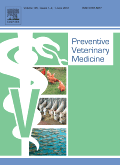
PREVENTIVE VETERINARY MEDICINE
Connecting researchers and practitioners for optimal animal health outcomes.PREVENTIVE VETERINARY MEDICINE, published by Elsevier, is a premier academic journal dedicated to advancing the field of veterinary science, with a particular focus on the prevention of diseases in food animals. With an impressive impact factor that reflects its stature in the academic community, this journal is categorized in the Q1 quartile across both Animal Science and Zoology and Food Animals categories, underscoring its significance in agricultural and biological sciences. Established in 1982, the journal is known for its rigorous peer-reviewed articles and research insights that contribute significantly to veterinary epidemiology, herd health management, and disease prevention strategies, fostering a closer connection between veterinary practitioners and researchers. By offering a platform for high-quality research that enhances animal health and productivity, PREVENTIVE VETERINARY MEDICINE serves as an essential resource for researchers, veterinarians, and students aiming to stay at the forefront of veterinary innovations and practices.